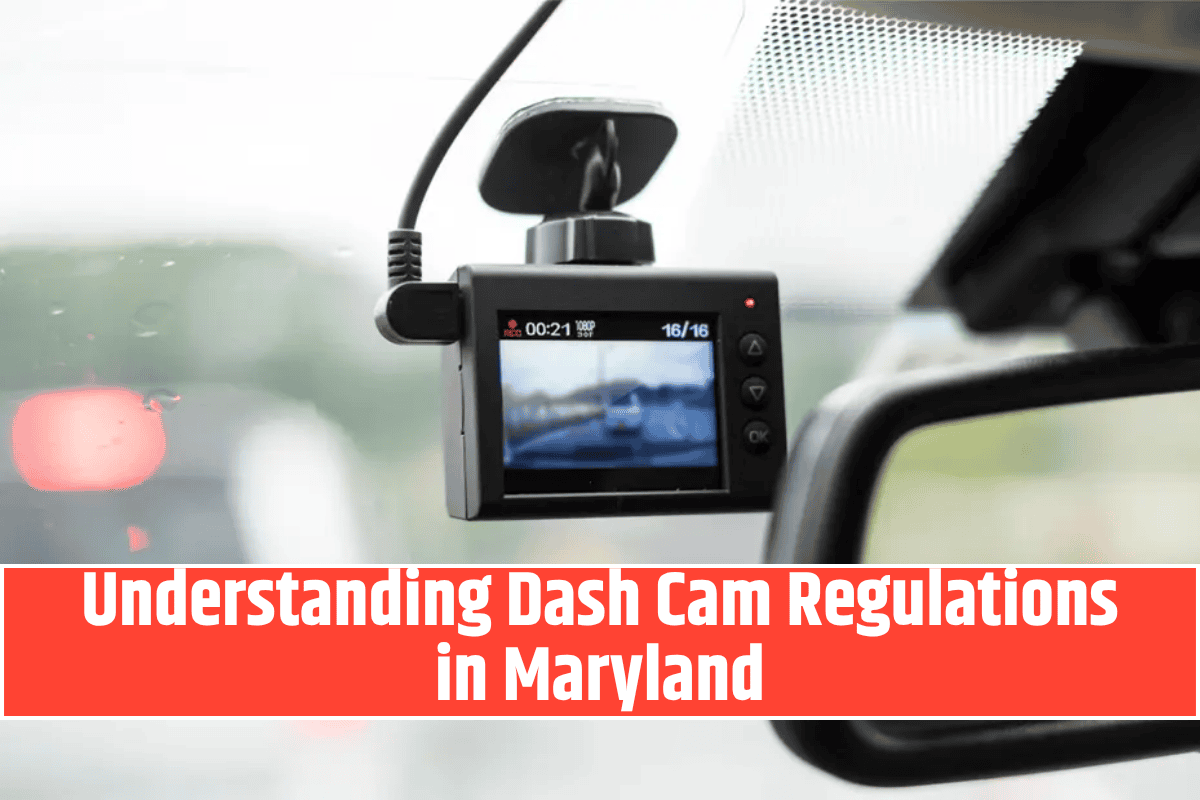Dashcams have become increasingly popular among drivers across the United States, and in Maryland, they can play a key role in understanding what really happened during a car accident. A dashcam, or dashboard camera, records video footage from inside your car.
This footage can help settle disputes over who was at fault in a crash, especially when there are no witnesses or when people give different versions of the story.
In this guide, we explain how dashcams work, the laws around using them in Maryland, and how their footage can be used in accident claims.
What is a Dashcam and How Does It Work?
A dashcam is a small camera attached to your vehicle’s dashboard or windshield. It records while you drive, capturing everything in front of your car—and sometimes the inside too. Modern dashcams often come with HD, 2K, or even 4K resolution, offering clear footage that can be zoomed in for detail.
They usually record in short clips, like 1-5 minutes, and keep recording on a loop. If something important happens, like a sudden stop or crash, a G-sensor saves that particular clip so it doesn’t get deleted.
Is It Legal to Use a Dashcam in Maryland?
Yes, dashcams are legal in Maryland, but there are rules to follow. You can use them in your personal vehicle as long as they don’t block your view of the road. It’s best to mount your dashcam behind the rearview mirror or on the dashboard to avoid breaking this rule.
Maryland’s Wiretapping Law
Maryland is a two-party consent state, which means everyone in a recorded conversation must agree to be recorded. If your dashcam records audio inside the car, you must inform passengers that they’re being recorded. Otherwise, it could be considered illegal under Maryland’s wiretapping law.
To stay safe legally, either turn off the audio recording feature or inform your passengers that you’re recording.
Can Dashcam Footage Be Used in Court?
Yes, dashcam footage can be used as evidence in Maryland courts, but only if:
- The footage is relevant to the case
- The video is clear, unedited, and authentic
- You can prove the footage was recorded at the time of the accident
- It follows Maryland’s Rules of Evidence
Even if the footage supports your case, it may be rejected if it’s unclear, incomplete, or was edited.
How Dashcam Footage Can Help or Hurt Your Claim
In Maryland, even a small mistake on your part can ruin your case. This is because Maryland follows a rule called contributory negligence. If you’re found even 1% at fault, you could lose your chance to get compensation.
That means if your dashcam shows that you were speeding or distracted, it could be used against you, not for you.
Make sure to review the footage carefully before sharing it with your insurance or lawyer.
Other Useful Types of Video Footage
Apart from your own dashcam, many other cameras can capture car accidents. Here’s how:
CCTV Cameras
CCTV footage is often found at intersections, parking lots, or near shops. It gives a wide-angle view and is helpful in multi-vehicle crashes. It can show if someone ran a red light or failed to stop.
MDOT Traffic Cameras
Maryland’s Department of Transportation runs traffic cameras across highways. You or your lawyer can request this footage, but act fast—it might be deleted after a few days.
Body-Cam and Police Dash-Cam Footage
Police officers often wear body cameras or have dashcams in their vehicles. These record the crash scene, including driver behavior and any statements made. This footage can be helpful in DUI or reckless driving cases.
Private Surveillance Cameras
Businesses and homes sometimes have security cameras facing the road. These can capture accidents that happen nearby. However, you’ll need the owner’s permission to get the video.
Cell Phone Footage
Bystanders might record an accident on their phones. This footage can show the crash or what people said right afterward. Always get contact info from witnesses in case they have useful videos.
Dashcams from Other Cars
If other vehicles were involved in the crash, their dashcam footage can also be important. It might give a different angle and help fill in the missing details.
Public Transit or School Bus Cameras
Buses often have cameras that record outside and inside. If a crash happens near a bus, the video could show how it happened.
Dashcams are legal and very useful tools in Maryland, especially during car accident claims. But to use dashcam footage legally, make sure it doesn’t block your view and doesn’t record audio without consent. The footage must be clear, complete, and follow Maryland’s legal rules to be accepted in court.
Dashcam video can help prove who was at fault—but it can also show your own mistakes. So always use it wisely. And remember, there are many other video sources like CCTV, traffic cams, or even phones that might help build your case.
For the best outcome, consult a legal expert to guide you through how to use this evidence properly.












